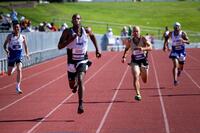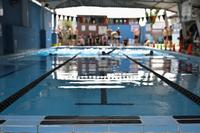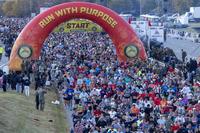Seeking to serve later in life is nothing new to the military or for those who have a desire to serve their country, even though they are pushing the age limits. There is an age range to join the Army (specifically), which is 17-35. That is an 18-year gap in which people who qualify can join the Army.
The Air Force has a max age of 39. The Navy has a max age of 34. The Coast Guard has a max age of 27, but depending upon the candidate and the rate they select, it can go up to 32. And the Marine Corps has a max age of 28.
There are age waivers, but they are few and very selective by each of the branches. Here is a question about how an older candidate needs to prepare.
Mr. Smith,
I am 30 years old and heavily considering joining the military, through either the Army or National Guard. I have done a lot of reading on Military.com, and your articles have been of great help so far.
Question 1: What is my likelihood of completing Basic Training at the age of 30? And the follow-up to that is - is completion of Basic at 30 an extreme rarity? Or is it relatively common?
I'm in relatively decent shape. My BMI falls within the limits for most service standards, and I tested myself this morning just to see what my baseline was. I ran 1 mile in 8:45, I then completed 30 sit-ups in a minute and finally 30 push-ups in a minute (although I could have pushed further here).
Question 2: What about the officer route? I believe I am eligible for OCS, which may be the route that I go -- but to my understanding, all of the PFT standards remain the same.
Aaron
The good news is that you are within age limits for the Army, and you have time to get your physical fitness up to par. Since you are older, I would focus on getting higher scores. That way, you have some wiggle room on days you may be feeling tired or sore due to a slower rate of recovery from your younger counterparts. The better condition you are in, the greater the chance you will have to graduate basic combat training (BCT) without injury or failing the standards.
It is not overly common that people over 30 join the military, but it is not uncommon, either. The age limits are there for a reason, and many people have an urge to serve later in life. Luckily for them, the body can handle it, and the military allows people in their late 20s and early 30s to join.
I would go to a recruiter when you are ready, not right now with your current BMI and PT scores. Go there ready to go to Basic, and they will take you seriously. If you show up, fail a PT test and have 20 pounds to lose, you may not get their full attention.
However, there is more to preparation than just preparing for the PT test. You also need to prepare for longer runs and rucking (walking with a backpack). This requires building your back and legs up stronger to handle the load-bearing of the job and training.
Here are some tips on training and recommended program options.
Army running programs
PT test training (pyramid, super sets)
Mixing in weights/calisthenics/running/rucking
Ace the OPAT/new ACRT
Army PFT and rucking preparation
Do not forget to learn about recovery and mobility days. They will help you as you prepare and go through military training programs.
Another note is to realize that these age limits and waivers change with the needs of the military. If there is armed conflict where the services are deploying on a regular cycle (Iraq/Afghanistan) and the military needs more people, the age limit may rise and the use of the age waiver may rise as well.
But for the officer ranks, since there are fewer officers in the military than enlisted, the standards can be elevated, and the military will take only the most qualified and competitive people for the officer ranks. You should not go into any military training program with the minimum standards physically, regardless of officer or enlisted.
Stew Smith is a former Navy SEAL and fitness author certified as a Strength and Conditioning Specialist (CSCS) with the National Strength and Conditioning Association. Visit his Fitness eBook store if you’re looking to start a workout program to create a healthy lifestyle. Send your fitness questions to stew@stewsmith.com.
Want to Learn More About Military Life?
Whether you're thinking of joining the military, looking for fitness and basic training tips, or keeping up with military life and benefits, Military.com has you covered. Subscribe to Military.com to have military news, updates and resources delivered directly to your inbox.



















